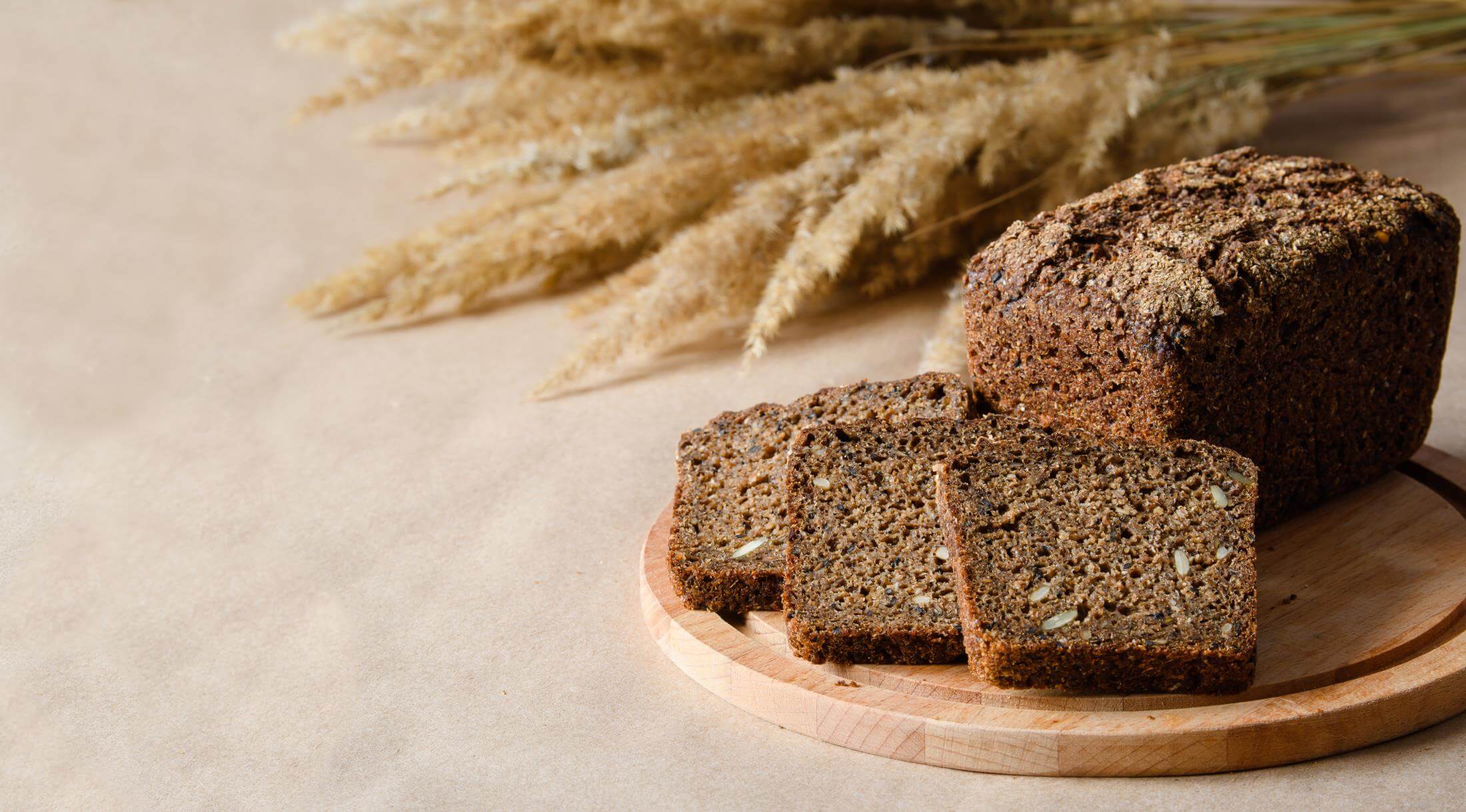Health Benefits of Whole Wheat Flour

Whole wheat flour is a highly nutritious food that has been at the forefront of healthy eating trends in recent years. In this article, we will examine in detail the health benefits of whole wheat flour, its nutritional values and how it can be used in daily life.
What is Whole Wheat?
Whole wheat is a type of flour that contains all the bran, endosperm and germ parts of the wheat grain. Unlike white flour, whole wheat flour retains all the nutrients of wheat during the milling process. This makes whole wheat flour a rich source of vitamins, minerals and fiber.
Nutritional Values and Content
Whole wheat flour contains many important nutrients. It is especially rich in B vitamins, iron, magnesium and zinc. It also has positive effects on the digestive system thanks to its high fiber content. Here are the main nutrients contained in whole wheat flour:
1. Fiber: Whole wheat flour regulates the digestive system and supports intestinal health thanks to its high fiber content. It also helps weight control by giving a feeling of satiety.
2. Vitamins: Vitamin B complex (B1, B2, B3, B6) supports energy metabolism and protects nervous system health.
3. Minerals: Minerals such as iron, magnesium, phosphorus and zinc strengthen the immune system and support bone health.
4. Antioxidants: Whole wheat flour contains antioxidants that slow down the aging process by preventing cell damage.
Health Benefits of Whole Wheat Flour
1. Contributes to Heart Health
The fiber contained in whole wheat flour helps lower cholesterol levels and protects heart health. Research shows that whole wheat consumption reduces the risk of heart attack and stroke. Therefore, whole wheat flour plays an important role in the prevention of heart disease. In addition, whole wheat flour consumption can reduce the risk of high blood pressure and support overall cardiovascular health.
2. Digestive System Friendly
Thanks to its high fiber content, whole wheat flour regulates bowel movements and prevents constipation. It also supports the intestinal microbiota and supports the digestive system.
improves your health. Fiber absorbs water in the digestive tract, softening the stool and making bowel movements more regular. This both prevents common digestive problems such as constipation and protects colon health in the long run.
3. Helps with Weight Control
The satiating properties of whole wheat flour prevent hunger crises and support lower calorie intake. Whole wheat flour with high fiber content prevents unnecessary snacking by increasing the feeling of satiety. In this way, it is an ideal food for those who want to lose weight or maintain weight control. In addition, the slow-digesting carbohydrates of whole wheat flour keep blood sugar in balance, providing long-term energy and preventing energy fluctuations.
4. Stabilizes Blood Sugar
Because whole wheat flour has a low glycemic index, it slowly raises and stabilizes blood sugar. This is an important advantage for diabetics and provides long-lasting energy. Low glycemic index foods provide a more stable energy level by preventing spikes and dips in blood sugar. This is a critical factor for diabetes management and supports overall metabolic health.
5. Strengthens the Immune System
The vitamins and minerals contained in whole wheat flour strengthen the immune system. Especially B vitamins and zinc increase body resistance and protect against diseases. Antioxidants fight free radicals, prevent cell damage and support the immune system. This makes the body more resistant to diseases and improves overall health.
6. Supports Bone Health
Whole wheat flour is rich in minerals such as magnesium and phosphorus. These minerals support bone health and help prevent bone diseases such as osteoporosis. Magnesium helps strengthen bones by increasing bone mineral density. In addition, phosphorus is the building block of bone tissue and is indispensable for bone health.
7. Supports Energy Metabolism
The complex of B vitamins plays an important role in energy production and regulation of metabolic processes. Whole wheat flour contains vitamins B1, B2, B3 and B6. These vitamins play a critical role in the conversion of carbohydrates, proteins and fats into energy. Therefore, consumption of whole wheat flour increases energy levels and reduces fatigue.
8. Improves Skin Health
Whole wheat flour also positively affects skin health thanks to the antioxidants and vitamins it contains. Antioxidants protect skin cells from free radical damage and keep the skin young and healthy. In addition, B vitamins support skin health and help the skin look bright and vibrant.
Using Whole Wheat Flour in Daily Life
Whole wheat flour can be used in various ways in the kitchen. Whole wheat flour, which is preferred for making bread, cakes, cookies and pasta, helps you create healthy and delicious recipes. Here are some recipe suggestions you can make with whole wheat flour:
1. Whole Wheat Bread: You can make a more nutritious and fiber-rich bread by using whole wheat flour instead of classic white bread. Whole wheat bread can be consumed as a healthy snack for breakfast or between meals.
2. Whole Wheat Pancakes: Pancakes prepared with whole wheat flour are an excellent choice for those looking for a healthy alternative for breakfast. They can be served with fruit and yogurt, thus offering a nutritious and balanced breakfast.
3. Whole Wheat Pasta: You can add extra fiber and nutrients to your meals by choosing whole wheat pasta instead of white pasta. Whole wheat pasta can be combined with vegetables and healthy sauces to create a delicious and nutritious main course.
4. Whole Wheat Cookies: Cookies made with whole wheat flour are an ideal option to satisfy your sweet tooth. You can make healthier desserts by using honey or dates instead of sugar.
5. Whole Wheat Pizza: You can make a healthier and fiber-rich pizza by preparing the pizza dough with whole wheat flour. Top it with fresh vegetables and low-fat cheese for a balanced and delicious meal.
6. Whole Wheat Muffins: For breakfast or snacks, muffins made with whole wheat flour offer a nutritious and delicious alternative. You can increase the nutritional value by adding walnuts, almonds or dried fruits.
7. Whole Wheat Pancakes: Pancakes made from whole wheat flour are an excellent choice for a healthy and nutritious breakfast option. Sweetened with fruit slices and honey, they offer a delicious and healthy breakfast.
8. Whole Wheat Flatbread: You can get a healthier option by using whole wheat flour instead of white flour in traditional flatbread recipes. Whole wheat pancakes filled with spinach, cheese or potatoes offer a healthy and filling meal.
Research on Whole Wheat Flour
Scientific research supports the positive effects of whole wheat flour on health. In particular, the benefits of whole wheat consumption on heart health, digestive system health and weight control have been emphasized in various studies. Here are some important studies on this subject:
1. Effects on Heart Health: A study conducted at Harvard University revealed that whole wheat consumption reduces the risk of heart attack and stroke. In the study, it was determined that the risk of heart diseases decreased by 30% in individuals consuming whole wheat.
2. Digestive System Health: A study published in the British Journal of Nutrition showed that whole wheat flour regulates bowel movements and prevents constipation thanks to its high fiber content.
3. Weight Control: A study published in the American Journal of Clinical Nutrition stated that whole wheat consumption increases the feeling of satiety and helps weight control. In the study, it was found that individuals who consumed whole wheat remained full longer and were more successful in losing weight.
Whole wheat flour is an indispensable part of a healthy diet. It stands out with its high nutritional values, digestive system-friendly structure and many health benefits such as helping weight control. By adding whole wheat flour to your daily diet, you can prepare delicious and nutritious meals. Make room in your kitchen to discover the benefits of whole wheat flour and live a healthy life.
Considering all these benefits of whole wheat flour, it is very important to include this food in your daily diet. For a healthy lifestyle, you can try recipes prepared with whole wheat flour and take advantage of the benefits of this nutritious flour.





